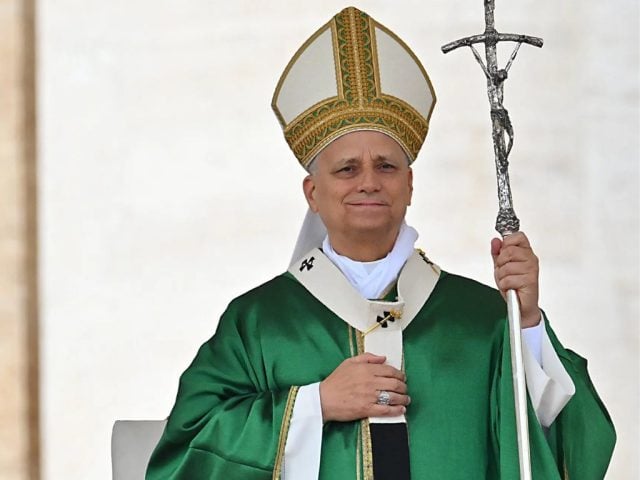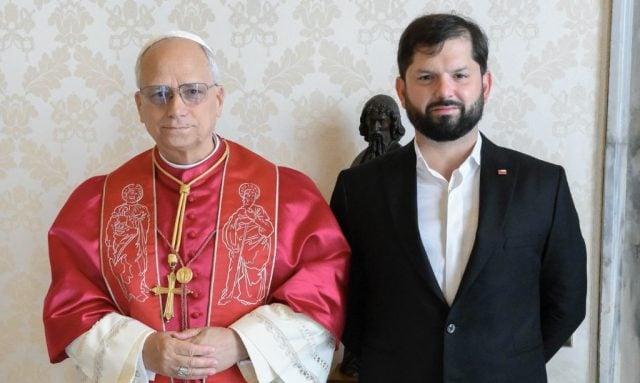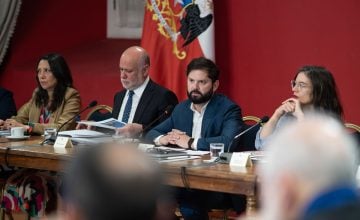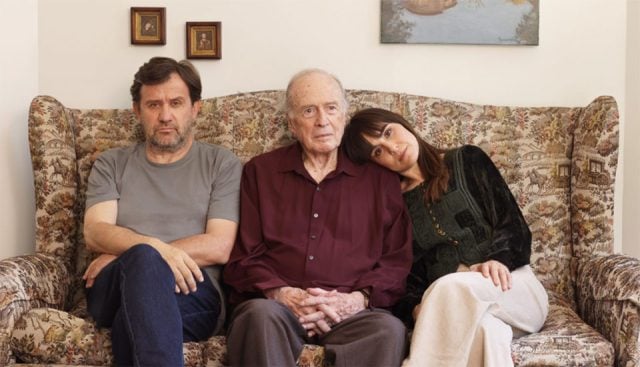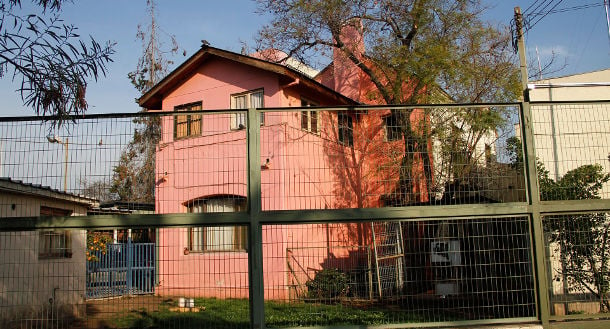While right-wing leaders routinely invoke the “defense of life” and “Christian morality” to oppose abortion and euthanasia, they remain largely silent on the papal call to live with austerity, care for the poor, and challenge the inequality built into the capitalist economic system.
The visit of President Gabriel Boric to Pope Leo XIV at the Apostolic Palace in the Vatican placed the apostolic exhortation Dilexi Te (“I Have Loved You”) at center stage. In it, the Pontiff urges Christians to put love and service to the poorest at the heart of their faith. The document, which also addresses poverty, women’s rights, and social debts, includes a direct appeal to politicians to act with compassion, justice, and austerity.
Between God and Privilege: How Chile’s Right Uses Religion
“I am Catholic first, politician second.” That is how José Antonio Kast describes his relationship with faith—one he has repeatedly used to oppose advances in rights such as abortion, euthanasia and marriage equality.
But Kast is not alone. At the Evangelical Te Deum, Senator Manuel José Ossandón (RN) argued, in relation to euthanasia and abortion, that “churches, whether Catholic or Christian, should take a stronger stand”.
Another example is the call by evangelical leaders to reject the proposed new constitution, where former presidential candidate Francesca Muñoz stated:
“I am supporting the public statement by the evangelical church because we will safeguard the rights of the unborn, the preferential right of parents to educate their children, and freedoms of belief, conscience, and expression, among others contained in the current Constitution, since they could be left out in the drafting of a new Constitution from a blank slate.”
In Chile, much of the right uses religion as a moral shield to resist these debates while ignoring other core Christian teachings. Faith itself is not the problem; the tension arises when certain convenient mandates of the Church are cherry-picked and others are discarded—such as Pope Leo XIV’s call in Dilexi Te for austerity, social justice, and love for the poor.
While some deploy religion when it suits them and center their campaigns on economic growth—and the protection of their own privileges—the papal message points the other way: toward the poor, the excluded, and those left behind by the system.
The exhortation Dilexi Te puts the poor at the heart of its message and underscores that poverty is not only economic but also social, moral, cultural, spiritual, and legal—a complex reality that touches every dimension of human life.
The document warns that we must not let our guard down against poverty. It voices particular concern about the dire conditions faced by many due to lack of food and water, and notes that poverty now manifests in multiple, overlapping forms. No longer a single, homogeneous condition, it reflects widening inequalities—even within generally affluent contexts.
In that spirit, the exhortation stresses that poverty is neither random nor a personal choice, challenging the notion that “the poor are poor because they want to be”. Merit, it argues, is not purely individual. The point is not that people in poverty lack merit or effort, but that the meritocratic narrative wrongly blames individuals for structural social conditions.
It also recognizes that women continue to face multiple violations of their rights—the very rights Chile’s right wing has often denied or downplayed. Although there has been progress, political and economic decisions still fall far short of realizing true equality between men and women, especially for those who are poorest and most vulnerable.
“Let us remember that women who suffer exclusion, abuse, and violence are ‘doubly poor’, because they often have fewer means to defend their rights. Yet among them we constantly find the most admirable acts of everyday heroism in protecting and caring for the fragility of their families.” While some countries have seen important changes, “societies worldwide are still far from clearly reflecting that women have exactly the same dignity and identical rights as men. Words say one thing, but decisions and reality shout another”—particularly for the poorest women.
The text recalls how Jesus, the apostles, and the first Christians detached themselves from material wealth to serve and accompany the most vulnerable—a worldview far removed from that of many right-wing politicians, known for their high purchasing power and family fortunes. It also denounces injustice and a hypocritical worship that fails to translate into concrete acts of solidarity.
The document speaks directly to the political class, urging local and national governments to include social movements in building a shared future:
“These grassroots leaders know that solidarity also means confronting the structural causes of poverty, inequality, joblessness, lack of land and housing, and the denial of social and labor rights. It means facing the destructive effects of the empire of money… Solidarity, understood in its deepest sense, is a way of making history—and that is what popular movements do.” For this reason, when institutions address the needs of the poor, “they must include popular movements and energize local, national, and international governments with that torrent of moral energy that comes from incorporating the excluded into the construction of our common destiny.”
The exhortation also addresses migration—another issue the right categorically opposes—stating:
“The experience of migration runs through the history of God’s people. Abraham sets out not knowing where he is going; Moses leads a pilgrim people through the desert; Mary and Joseph flee to Egypt with the Child. Christ himself, who ‘came to his own, and his own did not receive him’ (Jn 1:11), lived among us as a foreigner. This is why the Church has always recognized in migrants a living presence of the Lord, who on the day of judgment will say to those on his right: ‘I was a stranger and you welcomed me’ (Mt 25:35),” the document notes.
Finally, the text delivers a forceful critique of the capitalist system so staunchly defended by right-wing politicians. The Pontiff describes it as a “dictatorship of an economy that kills,” where the profits of a few soar while the majority is pushed into exclusion—treating inequality as the root of social conflict.
“It must be recognized that while the profits of a few grow exponentially, the majority drifts ever further from the well-being of that ‘happy’ minority. This imbalance flows from ideologies that preach the absolute autonomy of markets and financial speculation. In turn, they deny the State’s right to regulate in pursuit of the common good. Thus a new, invisible tyranny—at times virtual—imposes its laws and rules unilaterally and relentlessly,” the document warns.
Dilexi Te lays bare the contradiction between a faith used as a political shield and a Christianity that places the most vulnerable at its center. Against narratives that elevate wealth and exclusion, the Pope reminds us that true political power must serve the common good, not private interests.
We invite you to watch the program La Mañanera, where Javier Pineda analyzes the Pontiff’s exhortation and Boric’s visit to the Vatican:
